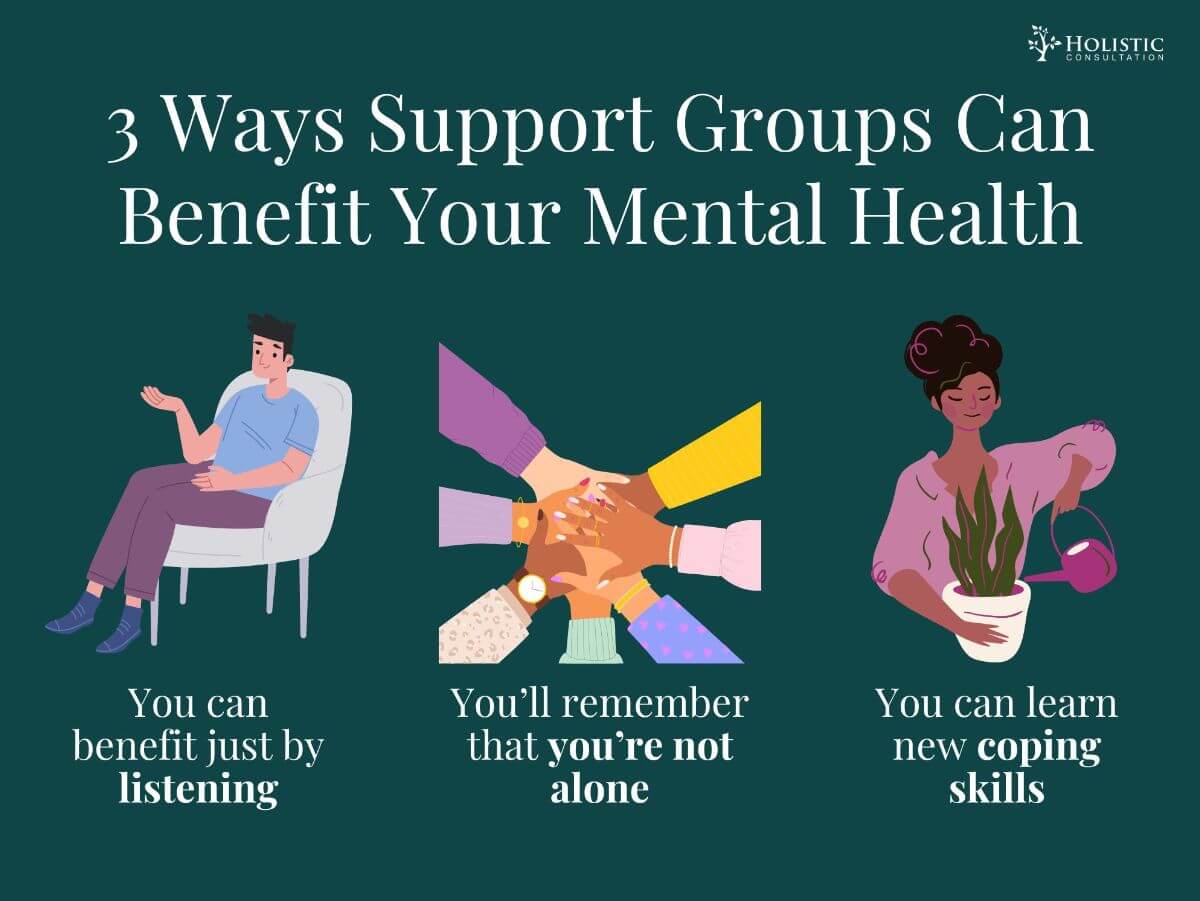Little Known Questions About Mental Health Counseling.
Table of ContentsUnknown Facts About Mental Health CounselingThe Main Principles Of Mental Health Counseling Unknown Facts About Mental Health CounselingSee This Report about Mental Health CounselingThings about Mental Health Counseling
With therapy, you can acquire insight into your very own patterns of actions and interaction, which can bring about more satisfying and satisfying relationships with pals, household, and enchanting companions. What we believe, we materialize. If you're consumed with negative feelings and adverse ideas that are disrupting your life, therapy can aid.Like our ideas, often our habits come to be damaging. They can maintain us from living a positive and healthy and balanced way of living. Perhaps you deal with dependency, or you often tend to self-sabotage, or there are various other negative means you act. Mental Health Counseling. Therapy can aid you change those habits that are having a negative impact on your globe and connections.

The value of therapy surpasses your mental wellness. Getting treatment to deal with particular elements of your life can aid you be much more effective in other locations, including job. Some research has actually even shown that there's a direct connection in between looking for mental health and wellness help and a decrease in missed out on work.

3 Easy Facts About Mental Health Counseling Explained
There are even much more advantages of treatment than just the ones we have gone over., or build relationships (charming or those with family or pals) in a healthy and balanced way.
For the purpose of the here and now research study, viewed advantages and obstacles to mental health help-seeking are being discovered. Previous research found that viewed barriers have a significant effect on university trainees' wellness habits choices (Von Ah, Ebert, Ngamvitroj, Park & Kang, 2003). Regarded advantages and barriers to help-seeking were especially picked as a result of their influence on decision-making and ultimately activity (Glanz, Rimer, & Su, 2005).
The existing research seeks to examine whether or not preconception functions as a barrier to treatment amongst university student. Eisenberg et al. (2011) suggested that uncertainty concerning treatment efficacy is another barrier to joining therapy. Research findings disclosed that college trainees recommended a number of obstacles to taking part in treatment. Mental Health Counseling. Amongst these were: (1) liking to manage psychological health issue themselves, (2) not having sufficient time to join treatment, (3) concerns regarding whether psychological health and wellness treatment is efficient in remediating problems, (4) an idea that stress and anxiety is regular or the problem will obtain better without therapy, (5) lack of money, and (6) fret about what others would certainly assume if they discovered therapy involvement.
Staff in campus psychological wellness centers might be regarded as unfriendly, and long wait times for services might be "repulsive" for pupils. Elements helping with much more positive attitudes are typically at the contrary pole of those aspects determined as barriers.
Mental Health Counseling for Beginners
One in three (34.6%) reported residing on school and one in 4 (23.3%) reported dealing with parents. Virtually fifty percent of trainees were associated with campus organizations and 1 in 10 reported being in a society or sorority. More than one-third of trainees (38.1%) reported that they had a family participant or close friend with a diagnosed psychological health and wellness condition.

The 6-Minute Rule for Mental Health Counseling
Univariate F-tests identified particular subscale products that substantially differed. Women were less likely than males to view people who most likely to counseling as emotionally weak, individuals who go to therapy as insane, to really feel that people with psychological illness must handle troubles by themselves, that people who go to therapy as not able to resolve issues, that people who go to counseling are careless, and to really feel that people that go to counseling are various from normal people in an unfavorable means.
Research study results revealed that females were substantially less likely than males to hold stigma-related perspectives. This is consistent with previous research which also located that men hold higher levels of viewed stigma than women (Chandra & Minkovitz, 2006). Based upon research study searchings for, click this site it is noticeable that males might be less likely than females to look for treatment because of reduced perceived obstacles as well as high stigma-related attitudes.
Mental Health Counseling Things To Know Before You Buy
Furthermore, college health and wellness specialists may provide curricula targeting males with info on the benefits of mental health and wellness treatment and the value of looking for assistance when required. All strategies need to be reviewed with future study to establish the result on university student, specifically men. As opposed to general populace researches which expose that ladies are most likely to look for mental wellness solutions contrasted to guys (Haunstein et al., 2006; Mackenzie, Gekoski, & Knox, 2006), the present study located no substantial distinctions in the variety of perceived barriers to help-seeking actions based upon sex.
This finding was unforeseen and could highlight that those that had received therapy had a far look at more info better idea of delay times and other "accessibility" obstacles that may make it hard to web begin treatment. Probably, participants that have received therapy view more barriers than participants that have not obtained counseling considering that looking for counseling services again might involve anxiety of self-disclosing personal info to a brand-new counselor.
Comments on “Mental Health Counseling - Questions”